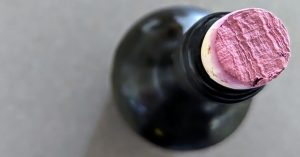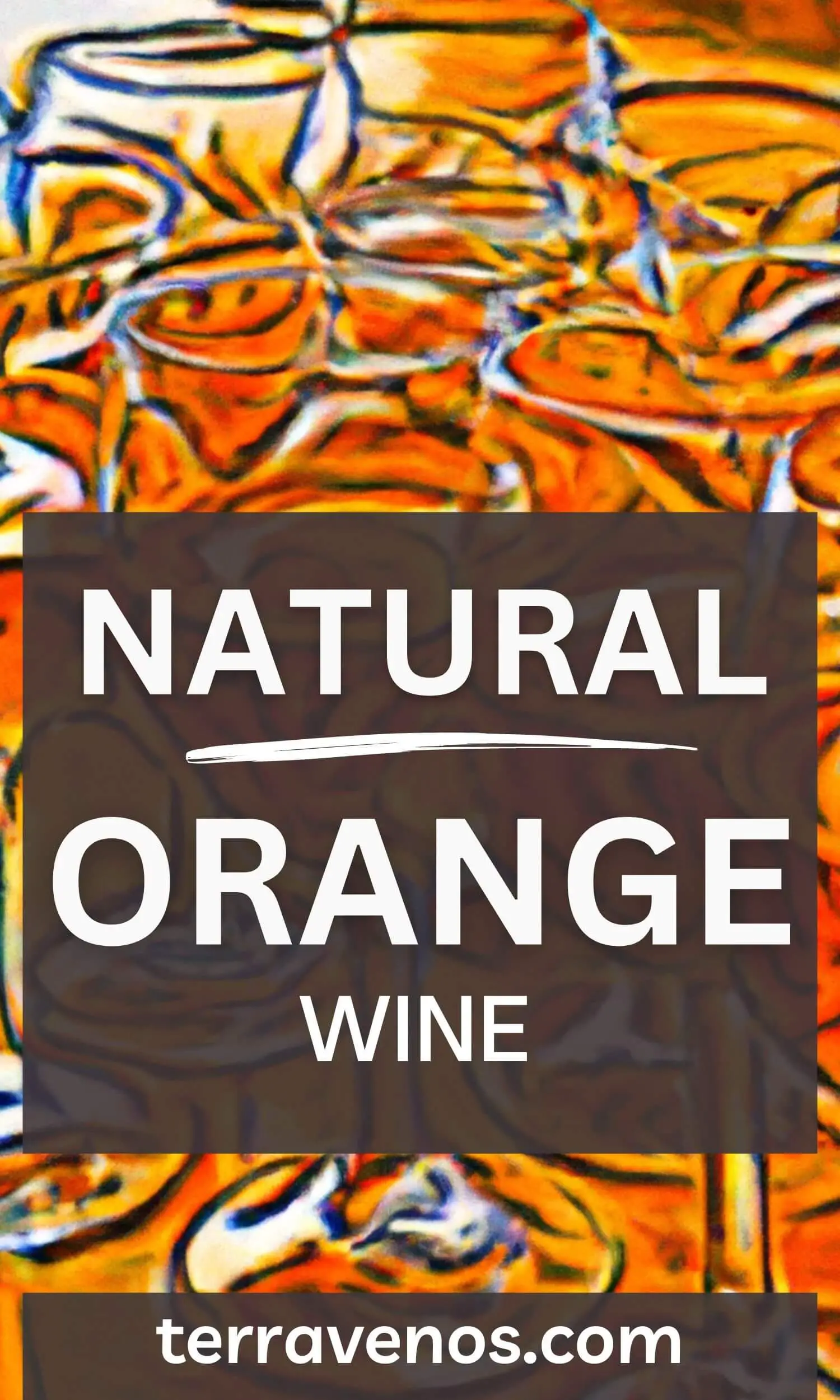
If you’re new to natural orange wine, welcome! These unique natural wines deserve their own special spot in your cellar – here’s why.
Natural orange wines use a traditional winemaking method by fermenting white grapes with their skins, which gives the wine its distinct amber color and imparts flavors and tannins typically found in red wines. Natural orange wines rely on minimal intervention, utilizing only the grapes and their natural yeasts, without the addition of chemicals or extensive processing.
Here’s what you need to know about natural orange wine.
- What Is Orange Wine?
- Where Did Orange Wine Start?
- What Is Natural Orange Wine?
- How Is Natural Orange Wine Made
- What Are the Benefits of Drinking Natural Orange Wine?
- What Does Natural Orange Wine Taste Like?
- What to Pair with Natural Orange Wine
- How Long Does Natural Orange Wine Last?
- Great Wine Read: Amber Revolution
- Final Thoughts – Natural Orange Wines: Are you ready?
- Thirsty for More?
What Is Orange Wine?
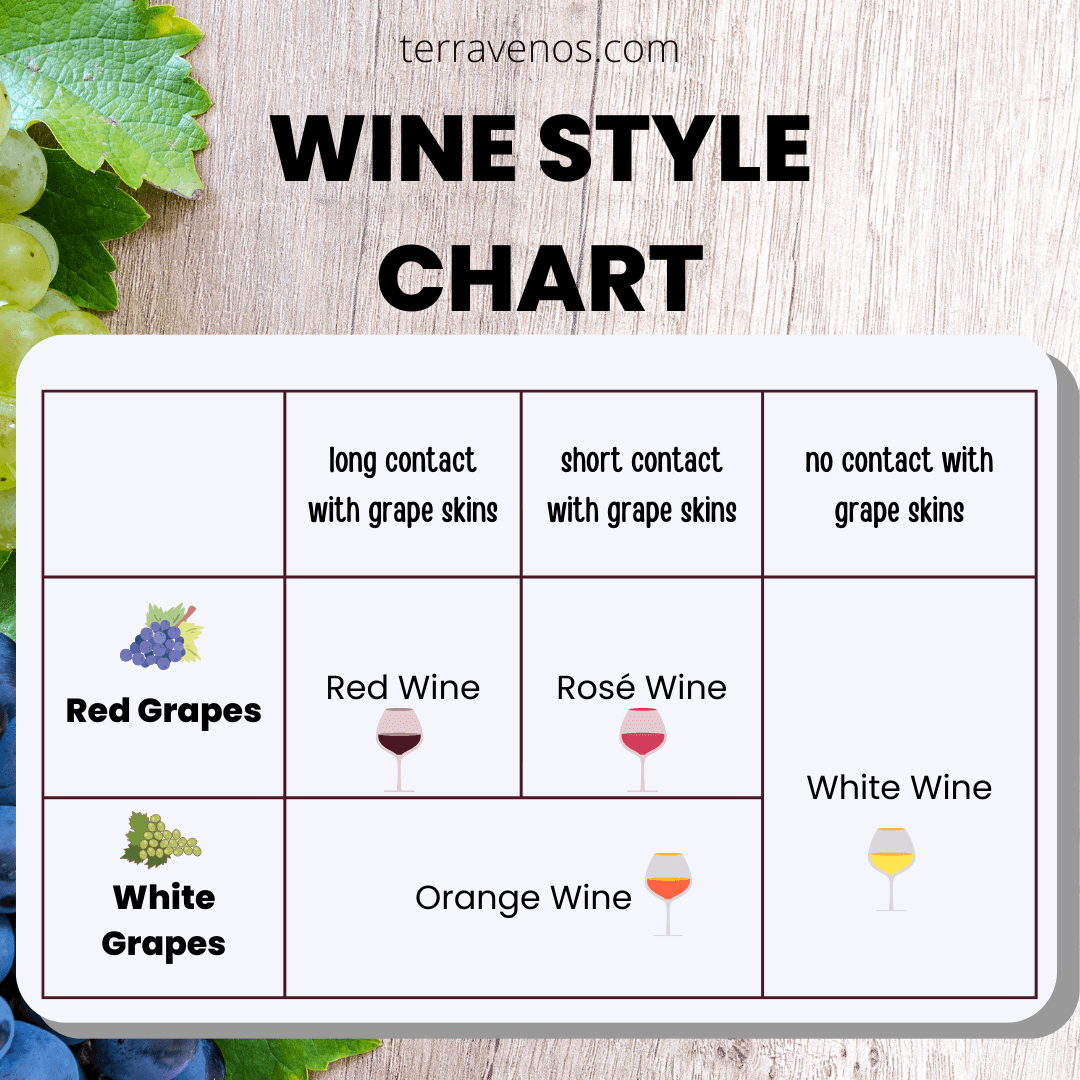
Orange wine is a type of wine made by fermenting white wine grapes on their skins. Typically, white wine grapes are crushed and pressed immediately with no skin contact. This results in crisp, light, fruit-forward, smooth white wines. Introducing skin contact to white wine grapes does 3 things to the wine:
- It adds tannins to orange wines
- It changes the color of white wines to orange or amber
- It adds spicy notes to the orange wine
Grape skins have tannin, that grippy sensation you feel in your mouth when drinking red wines. As a result of skin contact, you’ll taste astringency or chewy tannins in your natural orange wine.
The skins also have color compounds that will leech into the wine turning it from pale lemon to orange or amber.
The extended skin contact will impart bold, complex flavors like spice, peppercorn, or even tea leaves.
All of these attributes make orange wine a popular choice for wine enthusiasts looking for a new and exciting drinking experience.
Helpful Tip: Here’s an overview of how wine fermentation works if you’re curious and a little geeky (like me).
Where Did Orange Wine Start?
Orange Wine has a fascinating history that dates back to ancient civilizations in the Caucasus region or modern-day Georgia.
This ancient winemaking tradition has been passed down through the generations and today, orange wine has a growing fanbase around the world, especially natural orange wines. The production process may have changed over time, but the core elements of extended skin contact and minimal intervention remain the same.
This makes orange wine a testament to the cultural heritage of winemaking across the millennia.
What Is Natural Orange Wine?
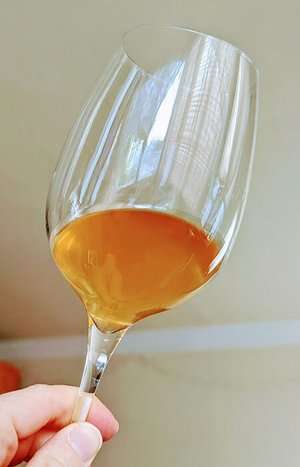
Natural orange wine follows a minimal intervention winemaking process. Like orange wines, the wine ferments on the grape skins, but will rely on natural yeast found in the winery or on the grapes instead of cultured yeast. The winemaker won’t add any special enzymes or additives (like acid or sugar) to change the nature of the wine. What comes in from the vineyard is what goes into the wine. Additionally, the winemaker will limit the use of sulfites (or avoid sulfites altogether) when making natural orange wine.
Careful! The term “natural wine” isn’t regulated. Anyone can put the word natural on a bottle of wine, even if it wasn’t made in a true natural style. Stick to boutique producers when shopping for natural wines.
Helpful Tip: Check out this post on how winemakers select yeast for fermentation.
How Is Natural Orange Wine Made
Delicious natural orange wine starts in the vineyard. Because the winemaker wants to limit chemical adjustments, white grapes that go into natural orange wine need to be healthy with minimal damage, like fungal rot or sunburn. Most natural wine purists will use organic grapes.
The white grapes are harvested and brought to the winery where they’re crushed, but not pressed. Because this is a natural wine, the winemaker will set the crushed grapes aside and let the fermentation start naturally.
In conventional white winemaking, the winemaker carefully monitors fermentation temperatures and uses chilled tanks to adjust the temperature up or down as needed. For natural orange wine, the winemaker will let the fermentation happen naturally in a container (like an amphora jar, oak barrel, or concrete vessel) without controlling the temperature.
Fermentation can take as little as 5 days to several weeks, depending on the temperature.
The winemaker may choose to keep the white grapes on the skins through fermentation or to press the new wine off the skins.
The winemaker can choose to leave the grapes on the skins for a few days or keep the wine in contact with the skins throughout the aging process – which could take a year!
The color, tannin level, and flavor intensity of the orange wine will depend on how long the winemaker chooses to leave the grape skins in contact with the wine. The longer the wine stays in contact with the skins, the deeper the wine’s color, the higher the wine’s tannins, and the more intense the wine’s flavors.
What Are the Benefits of Drinking Natural Orange Wine?
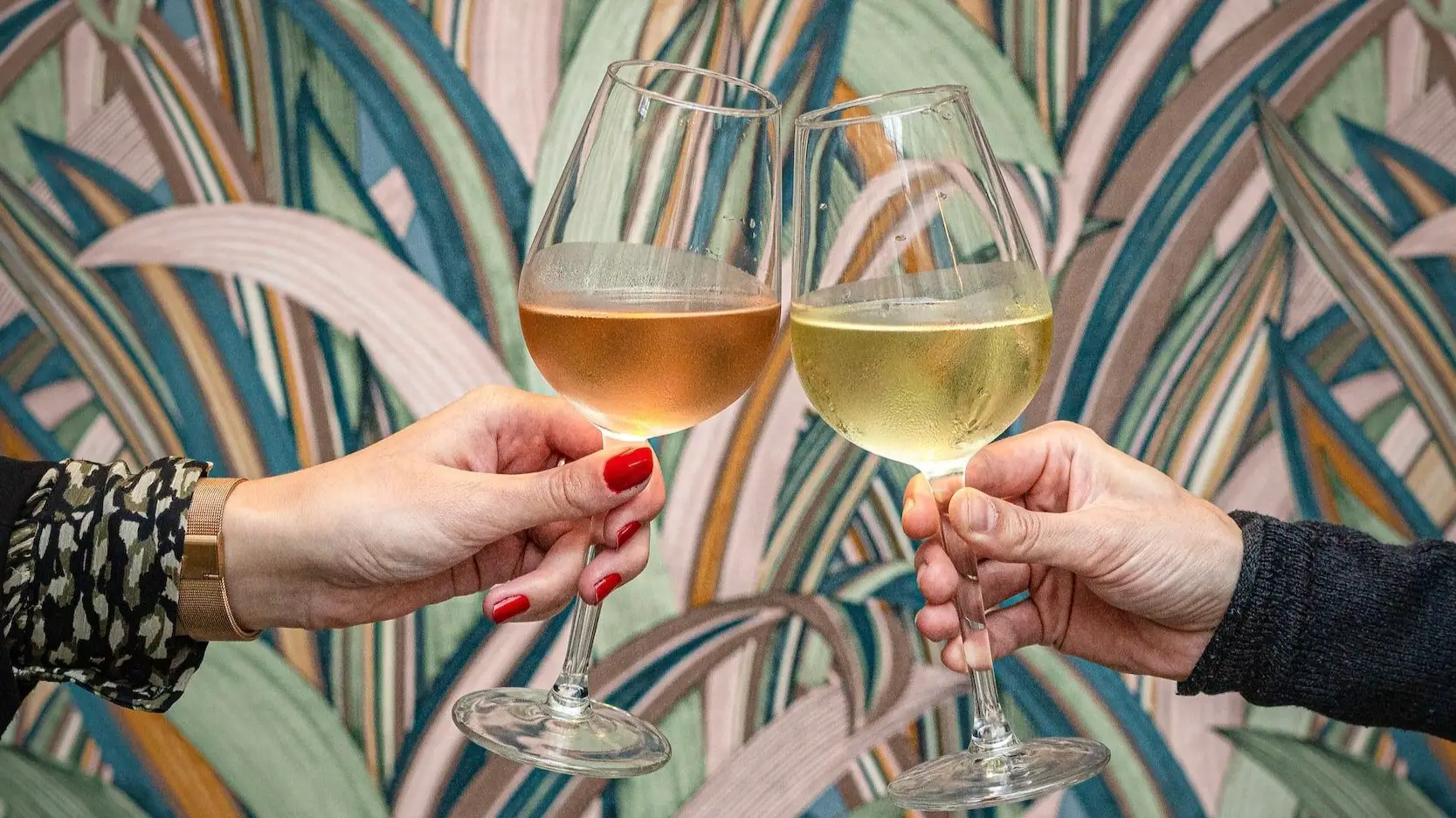
Natural orange wine is a healthy, environmentally-friendly option because it’s made using minimal intervention, relying only on the grapes and their natural yeasts.
Wine lovers who are sensitive to sulfites may find that natural orange wines are a good option. The low- or no-sulfite-added approach to natural wines makes them suitable for wine drinkers with sulfite allergies.
Natural orange wines are environmentally friendly.
Wineries use organic grapes with minimal intervention in the winery making natural orange wines more sustainable than conventional wines. For example, when wineries avoid using electricity to maintain the temperature of the wine’s fermentation and aging vessels, it lowers the wine’s total carbon footprint.
Fewer adjustments and non-organic inputs, including relying on native yeast, makes natural orange wine more environmentally friendly.
What Does Natural Orange Wine Taste Like?

Natural orange wines will have citrus, bruised fruit, herbs, nuts, flowers, and spice. You may taste funk, or earth from the fermentation process. Be prepared for a unique wine experience. Every natural orange wine will taste different because of myriad winemaking variables. Orange wines have more body and tannin that white wines lack.
Here are a few tasting profiles of natural orange wines:
- Fresh pears, apricot jam, white pepper
- Clementines, white jasmine tea, spice
- Orange rind, honeysuckle, potpourri, chamomile
- White peach, orange blossom, white flowers
Every natural orange wine will taste different.
Even if you buy two orange wines from the same winemaker but made in different years, they will taste different. This is part of the thrill of natural orange wines!
What to Pair with Natural Orange Wine
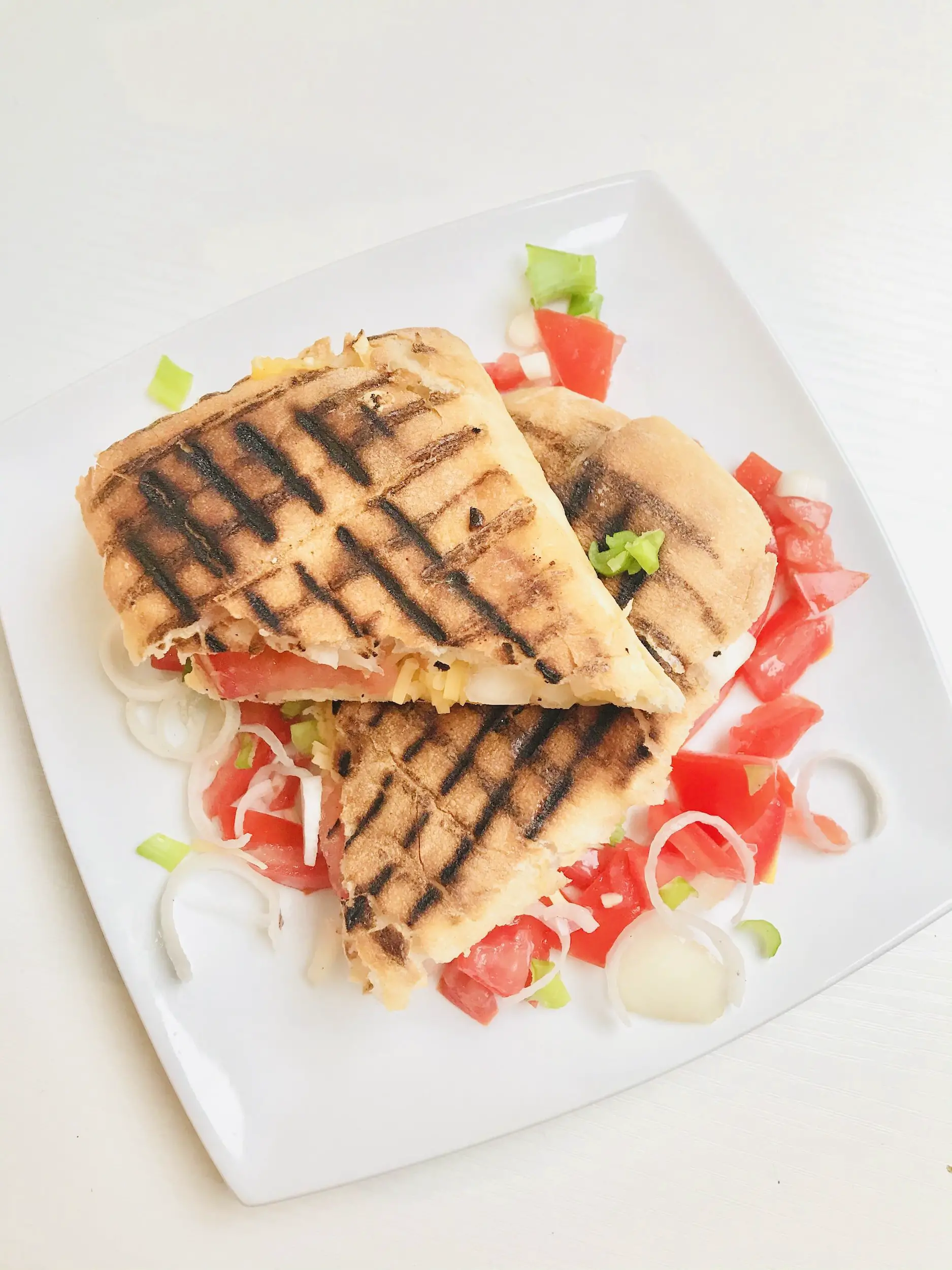
When thinking about pairing natural orange wine with food, keep in mind that the wine will have layered complexity. Natural orange wines have tannin, body, and spice that can stand up to heavier dishes.
Here are a few ideas to get you started:
- Grilled paninis
- Seafood boils
- Pizza
- Tacos al pastor
- Strong cheese: Asiago cheese, blue cheese, smoked cheddar
- Chorizo
- Salami sandwiches
- Spice-rubbed pork roast
Natural orange wines are unpredictable, so make sure that you read the winemaker’s notes when thinking about food pairings. Natural orange wines combine sweet and tart notes, tannin, and a spicy complexity. Yum!
How Long Does Natural Orange Wine Last?
Natural orange wine will last for about a year in the bottle. While the tannin in your natural orange wine acts as a preservative, the wine doesn’t have sulfites that will offer longer protection in the bottle. A best practice is to enjoy your natural orange wine as soon as you bring it home.
Great Wine Read: Amber Revolution
If you’re ready to dive into orange wine, then I insist that you read Amber Revolution, by Simon Woolf. It’s a fantastic, sensual dive into the history of orange wine and how this unique wine has become the darling of wine enthusiasts the world over.
Final Thoughts – Natural Orange Wines: Are you ready?
You need to be able to approach natural orange wines with an open mind and curious palate. These are not wines for those who want to have an uncomplicated, no-surprises kind of wine-drinking experience (nothing wrong with that).
The unexpected is what drives wine enthusiasts to seek out natural orange wines with gusto!
You really don’t know what you’re going to get in the bottle with natural orange wine and every producer’s natural orange wines will be distinctive. That’s just how it is.
So, the only question left is: Are YOU ready for natural orange wine?
Thirsty for More?
If you’re researching orange wine, here’s an overview post I put together on the history of orange wine and more of the winemaking details. Check it out!
Orange wines come in several different styles, you’ll probably like some more than others. Find out why.
And here’s a quick, 1-minute overview of natural wines and some of the marketing gimmicks behind them that are helpful if you want to be a mindful consumer.




